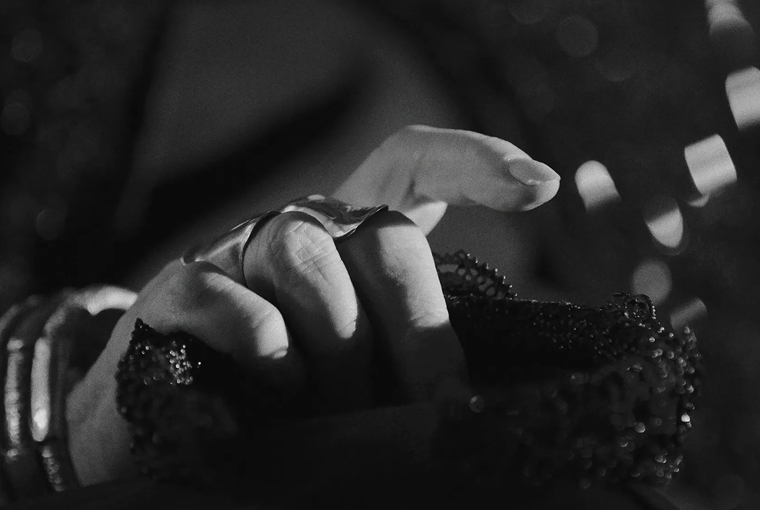An Actress With a Wardrobe
Lyubov Arkus’ What Beat You Nothing (Kto tebya pobedil nikto, 2021)
Vol. 122 (February 2022) by Jack Page
Lyubov Arkus’ documentary is a devout love letter to the iconic Russian actress Alla Demidova, who – for the filmmaker – was a once in a lifetime star. From stage to screen and back again, Demidova may not have won the hearts of audiences as a household name, but she would always be a monumental presence for film historians and theater critics alike. Split between her seminal residency with the Taganka company and her prolific work in Soviet and Russian cinema, Arkus collects a variety of stimulating artifacts to enlighten and entertain. Colourful contemporary footage is spliced with black and white archived images and rare photographs, mixing forms of media to keep an otherwise conservative format more engaging. These montages of flashbacks and current day interviews with Demidova and her peers blur any notion of an exact, linear timeline, also lending itself to the avantgarde style that is so closely associated with the film’s artistic subject matter.
Arkus frames her career against the backdrop of a country in chaos, where the push and pull of both political and social issues influences Demidova’s very trajectory in choosing roles. As the director chronicles the ever-evolving movements of Russian cinema in the early 50s to the late 80s, Arkus makes an enthusiastic and creditable case that Demidova’s characters and performance often mirrored the trends of a nation. Her desultory demeanor is praised as a “featurelessness” that embodied “very late Soviet resistance”. Behind the curtain, Demidova was infamous for her social awkwardness and phobia of crowds. She would disappear from wrap parties and opening night celebrations, avoiding the public eye. She self-confesses she didn’t want to belong with the in-crowd and her professional choices reflected it too. Demidova didn’t want to give herself up to the mainstream, favoring experimental plays and films over more traditional offerings. When other leading ladies of the silver screen leaned towards melodrama, she found introverted roles: poets, fanatics, and foreigners. When she was eventually cast in period dramas, she chose the antagonist: villain, prostitute, or sorceress. Admittedly, Demidova reveals that “no parts were worthy of my acting potential” but it is clear her diverse oeuvre owed itself to being the outsider, the unusual and unorthodox.
Arkus’ detailing of his favorite actress’ individualism is a key section of the documentary. He explains Demidova’s star presence assimilated “memories of discarded values” and “leftovers of old ways”. Within the context of the fall of the USSR, what she would cinematically represent to Russian viewers was a cynical restlessness and – born from it – a cinema of moral anxiety. Demidova’s characters were portrayed to embody a society “in danger of breaking down at any moment.” Although she may seem as if she were carrying the weight of the world on her shoulders, Arkus is careful to include scenes that also humanize the celebrity. The feisty Demidova is first introduced to the spectator in the back of a taxi, being chaperoned to a shoot through a rainy St. Petersburg evening. She proves to be overly sensitive to the intrusive set up of the handheld camera, squirming uncomfortably as her eyes accidentally catch the sight of the lens. Self-aware of her compromised situation, she complains “I don’t like establishing shots.” Here, Demidova’s crochety attitude is comedically undermined by the intertextuality of her reference, wherein she quite literally directs the director. A reluctant focal point for the documentary, she often teases Arkus for his banal interview questions and is quick to correct any erroneous or fabricated details in her life story. One touching anecdote involves Demidova rectifying why she turned down work with renowned Russian filmmaker Andrey Tarkovsky. It wasn’t because – as Arkus would believe it – she didn’t get the part, but because she didn’t want to feel embarrassed urinating on screen for the role.
The title of the film is lifted from a modern stage adaptation of Hemingway’s most celebrated parable The Old Man and the Sea. The director of the play intends to reveal that even in defeat, there is some manifestation of victory. From the fisherman’s perspective, it is not his pride that caused him to lose the catch of a lifetime, but the fact he merely floated too far from shore. The problem wasn’t the size of the fish or the predators they attracted around the boat, but simply the bad fortune to have drifted a little further away from inland than he was comfortable with. Losing his prized colossal fish to the hungry sharks on his return home did not negate his skill, it merely tested him to the highest level. Arriving to town empty-handed – with nothing but the scars on his body and the skeletons of his legendary catch – his prowess only grew rather than diminished. Demidova’s contentious career choices, which resulted in an uneven collection of successes and shortcomings, perfectly echo the ideology of the fisherman she personifies in the production. The short story is a veritable metaphor for Demidova’s own occupational hazards. The fisherman’s loss was also his win. “What beat you?” the boy asks. “Nothing…” returns the man.




Leave a Comment